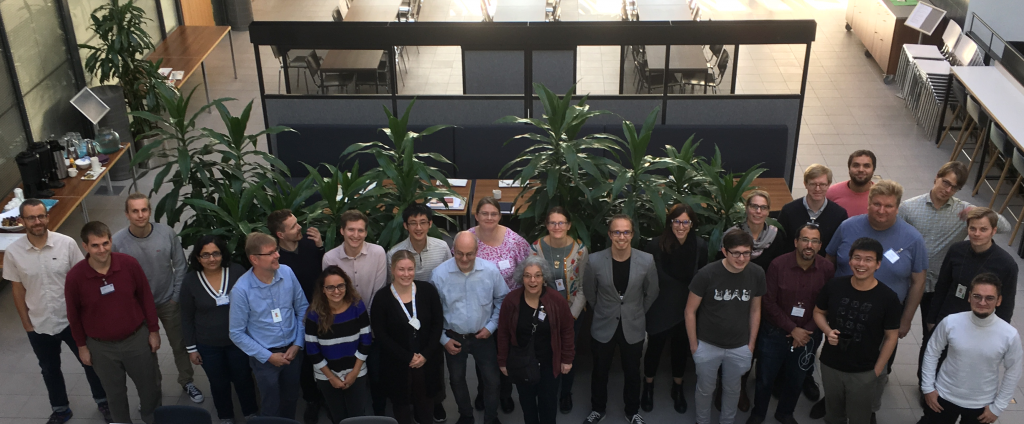FMI-SPACE hosted a Workshop on Inverse Problems and Uncertainty Quantification in Satellite Remote Sensing in 10–12 October, 2018. The workshop gathered together international experts on remote sensing and related mathematical and statistical inverse problems.
Advances in atmospheric remote sensing are profoundly linked to finding efficient solutions to inverse problems. In particular, the workshop addressed in several contributions novel approaches for satellite retrievals of carbon dioxide, especially regarding the Nasa Orbiting Carbon Observatory -2 (OCO-2) mission. Prof. Heikki Haario, the lead organiser of the workshop, emphasises the importance of collaboration between researchers from different fields in this inherently multidisciplinary effort. The presentations covered several aspects of the OCO-2 mission, and novel methods for high dimensional and high-CPU problems encountered in remote sensing in general.
The workshop was organised jointly by the FMI and Lappeenranta University of Technology teams of the Academy of Finland Centre of Excellence in Inverse Modelling and Imaging. The Centre of Excellence started in January 2018 and continues for eight years. Within the Centre of Excellence, the scientific goal of the FMI team, led by Prof. Johanna Tamminen, is to improve the interpretation of satellite remote sensing of greenhouse gases and air quality by developing and applying novel mathematical and statistical methods of uncertainty quantification to satellite remote sensing. The ultimate goal is to develop improved methods for estimating sources and sinks of greenhouse gases by utilising satellite observations.
The workshop attracted close to 30 participants, including leading international experts from the Nasa Jet Propulsion Laboratory, Massachusetts Institute of Technology, University of Montana, Case Western Reserve University, University of Warwick, and University of Monash.
